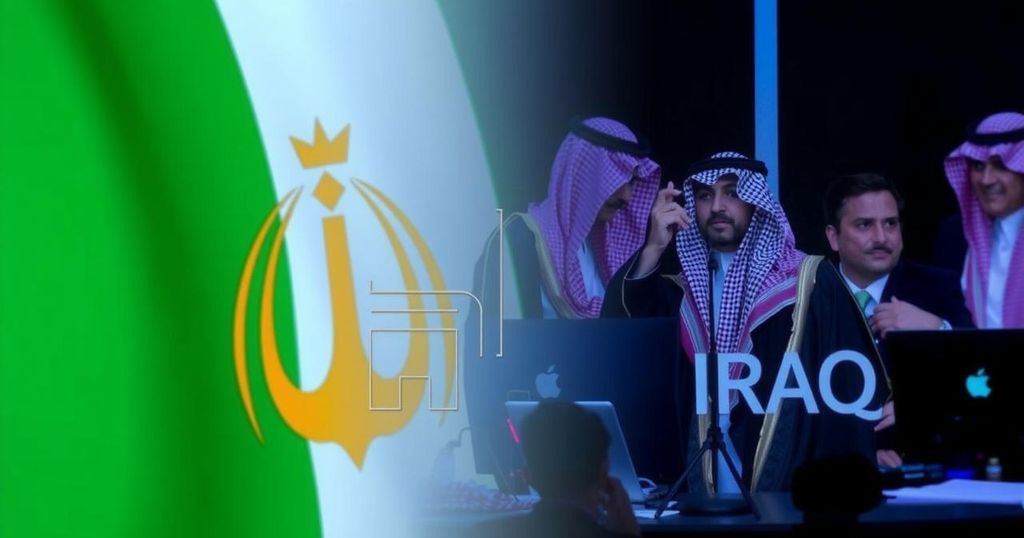Iraq Suspends License of Saudi-Owned MBC Channel After Protests

Iraq has suspended the license of the Saudi-owned MBC Media Group following a report that labeled leaders of Iranian-backed armed groups as terrorists. The move came after protesters stormed the channel’s offices, leading to equipment damage. The incident highlights ongoing tensions in a region where media freedom is critically intertwined with issues of national security.
In response to escalating tensions, Iraq has suspended the broadcasting license of the Saudi-owned MBC Media Group. This decision was made following the airing of a controversial report by the channel that labeled various leaders associated with Iranian-backed groups as terrorists. The Iraqi Communication and Media Commission announced this suspension on Saturday, just hours after armed supporters of these groups invaded the channel’s offices in Baghdad, resulting in significant damage to equipment and infrastructure. The incident unfolded on Friday evening, with demonstrators gathering outside the station, igniting a fire and expressing their disdain with chants against the Saudi kingdom. The MBC report in question highlighted notorious figures such as Yahya Sinwar of Hamas, Iranian General Qassim Suleimani, and Hezbollah leader Hassan Nasrallah, who have all been designated as terrorists by the United States. This sparked outrage among supporters of these groups, leading to their aggressive response against the station. Furthermore, the Saudi Media Regulatory Authority criticized the report for violating its internal media policies and is contemplating legal actions in response to this situation. Attempts to solicit comments from MBC representatives in Iraq were unsuccessful, although indications suggest that the contentious report has since been removed from the network’s platform.
The situation arises against a backdrop of complex geopolitical tensions in the Middle East, particularly involving Iran and its proxy groups operating in Iraq. The classification of various leaders linked to these groups as terrorists by MBC Media Group was viewed as a provocative act, especially considering Iraq’s fragile balance with these powerful factions. The interruption of broadcast services serves as an example of media regulation intersecting with national security concerns in a volatile region.
The suspension of MBC Media Group’s operational license in Iraq reflects the heightened sensitivities surrounding media representations of influential armed factions in the country. The imminent legal measures by both the Iraqi authorities and the Saudi media regulators highlight the contentious relationship between media freedom and political stability in the region. As tensions continue to unfold, the responses from both Iraqi and Saudi regulators could set a precedent for the treatment of foreign media in sensitive geopolitical landscapes.
Original Source: www.nytimes.com








